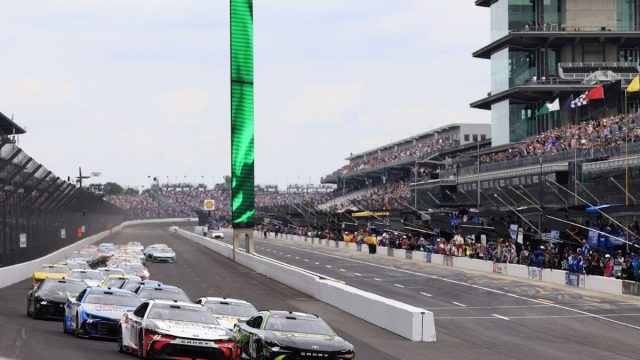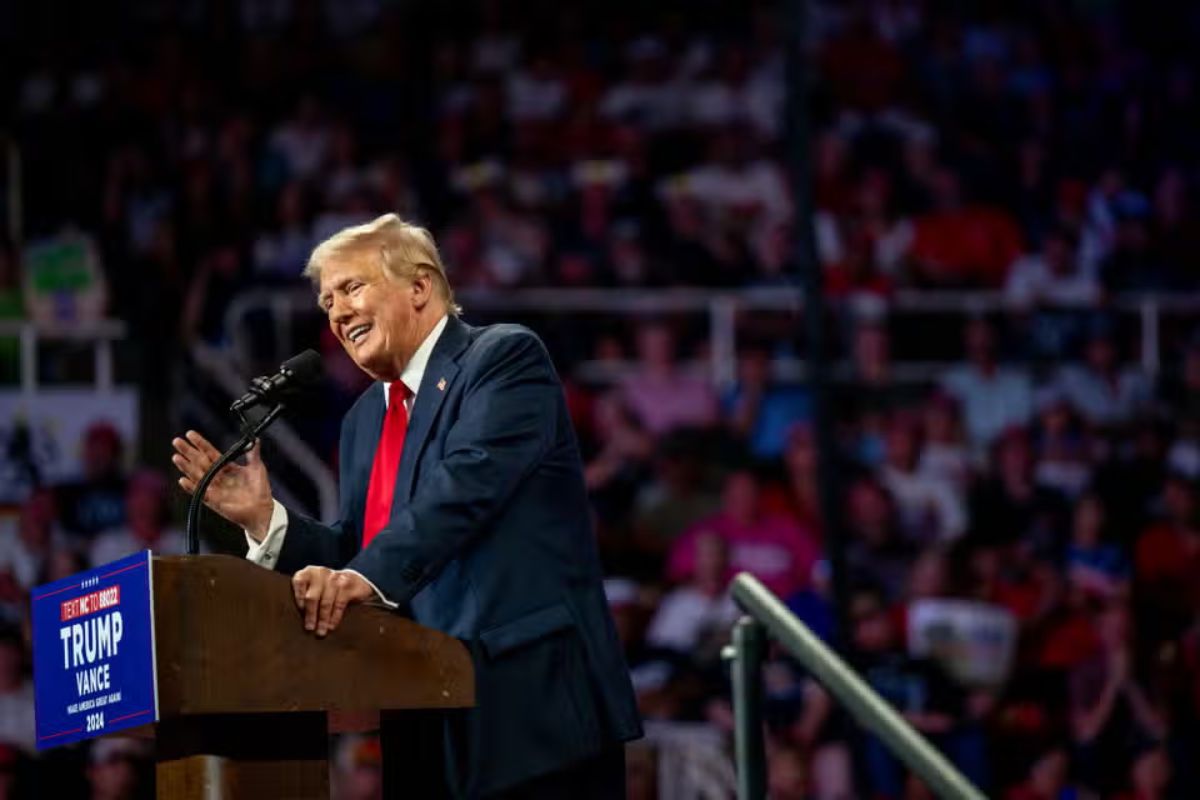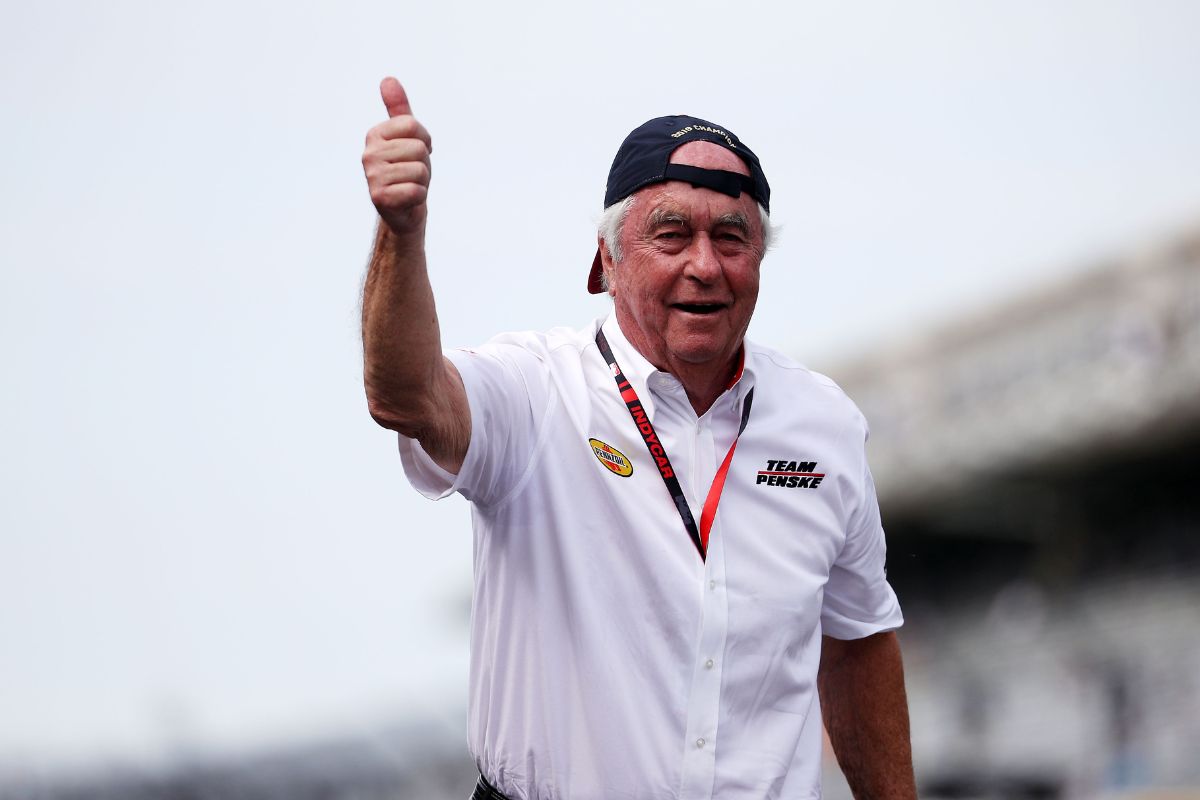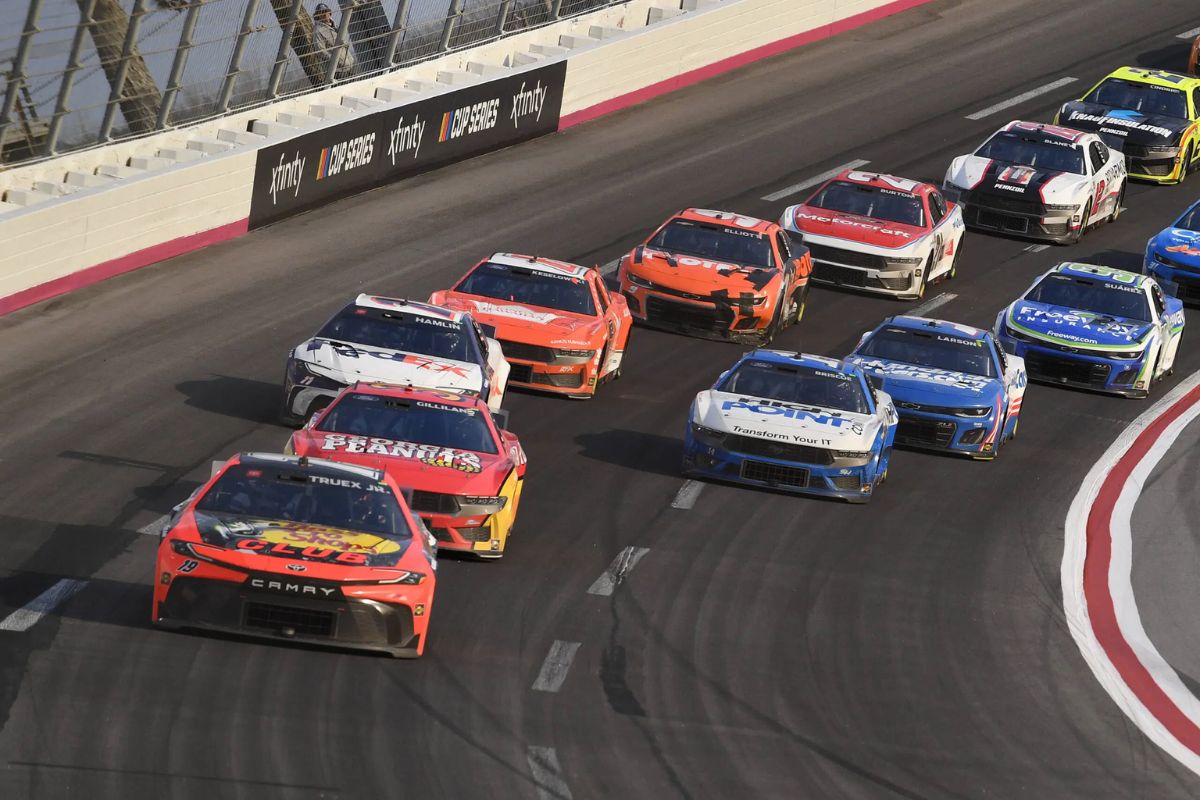NASCAR Drivers in U.S. Military: The recent suggestion by Trump to incorporate NASCAR drivers into crucial roles within the U.S. military presents a fascinating intersection of sports and national defense. By advocating for these athletes, known for their leadership and teamwork on the track, he raises significant questions about the nature of military leadership and recruitment strategies. This proposal, while unconventional, invites scrutiny regarding the qualifications and implications of such appointments.
Key Highlights
- Trump proposed integrating NASCAR drivers into military advisory roles, reflecting a blend of sports and military service.
- The suggestion aims to boost military recruitment by engaging sports fans and enhancing public perception of military leadership.
- NASCAR drivers’ popularity could improve outreach initiatives and morale within the armed forces.
- Critics question the qualifications of NASCAR drivers for military leadership, highlighting a need for tactical understanding and operational expertise.
Rally in Charlotte
What implications could Donald Trump‘s recent remarks in Charlotte about integrating NASCAR drivers and football coaches into military leadership have for both the sports community and national defense plan?
Trump’s charisma is a notable factor in his ability to engage audiences, and his comments resonate deeply within NASCAR culture, where loyalty, teamwork, and high-stakes decision-making are highly valued. By suggesting the inclusion of these figures in military roles, he taps into a narrative of local engagement that could mobilize grassroots support among sports fans and military advocates similarly.
The political implications are manifold. Initially, this proposal may serve to strengthen the perception of military leadership as accessible and relatable, bridging the gap between civilian life and military service. This could foster a sense of shared purpose and community that improves recruitment and retention efforts in the armed forces.
Furthermore, integrating figures from popular sports could introduce a fresh perspective into military strategy, potentially invigorating traditional approaches with creative, high-energy leadership styles.
However, this suggestion raises questions about the qualifications necessary for military leadership. While NASCAR drivers and football coaches exemplify attributes such as resilience and tactical thinking, the complexities of military operations require specialized training and experience that may not be inherent in these roles.
Consequently, while Trump’s remarks may energize certain segments of the population, they also challenge existing paradigms around military leadership and provoke a necessary discussion on the balance between popular culture and national defense plan.
Praise for Roger Penske
In a recent statement, Trump highlighted Roger Penske’s unmatched achievements in auto racing, suggesting that the tactical thinking and leadership skills demonstrated by such champions could offer valuable insights into enhancing military operations.
Roger Penske, the owner of Team Penske and renowned for his record 20 Indianapolis 500 victories, exemplifies leadership that transcends the racetrack, embodying principles essential in military innovation.
“What you do is amazing. It’s amazing, so amazing.”
“What I have always said is we need to get some of these guys… Roger Penske won like 20 Indianapolis 500s, this guy wins all the time… let me use these guys to guide our military.” – Trump
Penske’s leadership style is characterized by a deep understanding of teamwork dynamics and calculated thinking. His success is not merely a product of individual talent but resonates through a culture of collaboration and discipline.
- Racing Strategies: Penske’s ability to develop and adjust intricate racing strategies in real-time displays a level of adaptability vital in military contexts. The capacity to pivot based on evolving circumstances is invaluable on both the track and the battlefield.
- Teamwork Dynamics: The success of a racing team relies on seamless communication and coordinated efforts. These elements mirror the teamwork necessary for military units to function effectively under stress.
- Calculated Thinking: Penske’s foresight in anticipating competitors’ moves mirrors tactical military planning, where predicting adversarial actions can mean the difference between victory and defeat.
Inclusion of Football Coaches
Building on the idea that leadership in racing can inform military tactics, the inclusion of football coaches in this discussion highlights the parallels between sports coaching and military command, where tactical planning and team dynamics play vital roles in achieving success. Football coaches are adept at developing coaching strategies that foster team cohesion and resilience—traits undeniably valuable in military contexts.
“It’s the same with coaches, you take some of the greatest football coaches and put them in a room… what do you like coach?
“Because in its own way it’s not so much really different.” – Trump
The leadership dynamics inherent in coaching can translate effectively to military environments. Coaches routinely analyze opponents, devise game plans, and motivate athletes, mirroring the tactical foresight required in military operations. Just as a coach must adjust tactics based on the strengths and weaknesses of both their team and the competition, military leaders must adapt their strategies based on battlefield conditions and enemy movements.
Campaign Themes
Campaign themes are vital in shaping the narrative of any political contest, as they not only reflect the candidates’ priorities but also resonate with the electorate’s concerns and aspirations. In the context of the upcoming election, former President Trump’s recent rally speech exemplifies a tactical blend of political rhetoric aimed at galvanizing voter engagement.
- Stringent Immigration Policies: Trump continues to advocate for strict immigration controls, positioning this issue as a cornerstone of his campaign approach. By emphasizing border security, he aims to appeal to voters who prioritize national sovereignty and the rule of law.
- Robust Law Enforcement Initiatives: The former president’s calls for improved law enforcement resonate with constituents concerned about public safety. By framing law enforcement as fundamental to societal stability, he seeks to create a sense of urgency that could mobilize support among crime-weary voters.
- Targeting Political Opponents: Trump’s criticisms of Vice President Kamala Harris, branding her as ‘the most incompetent and far-left vice president in American history,’ serve to solidify his base while sowing doubt among undecided voters. This tactic not only reinforces his narrative but also underscores a clear distinction between his policies and those of his opponents.
Through these themes, Trump demonstrates a well-crafted campaign strategy that addresses pressing issues while simultaneously energizing his political base, demonstrating a potent blend of rhetoric and voter engagement.
Reactions and Speculations
Reactions to the proposal of integrating NASCAR drivers and football coaches into military roles have been polarized, with many questioning the appropriateness of such unconventional appointments in the context of military leadership and strategy. Public opinion varies widely, with some viewing this suggestion as a novel approach to improving military engagement through the influence of sports, while others perceive it as a troubling dilution of military qualifications vital for effective tactical planning.
Critics argue that the skills vital for success in competitive sports do not inherently translate to the complex demands of military leadership. Effective military strategy requires a deep understanding of tactical operations, situational awareness, and the ability to make decisions under strain—qualities that may not correlate with a career in racing or coaching.
Supporters, however, posit that the leadership skills honed in high-stress sports environments could foster creative approaches within military ranks, potentially revitalizing traditional strategies with fresh perspectives.
The discourse surrounding this proposal highlights a broader societal debate about the intersection of sports influence and military readiness. As the discussion continues, it raises critical questions about what constitutes effective leadership in the armed forces.
News in Brief: NASCAR Drivers in U.S. Military
The proposal to integrate NASCAR drivers into the U.S. military reflects a fresh approach to enhancing military leadership and recruitment. By emphasizing the parallels between racing and military operations, the initiative aims to foster relatable leadership.
However, this suggestion raises critical questions about the qualifications and appropriateness of such appointments.
The ongoing discourse surrounding this proposal highlights the complex relationship between sports and military readiness, inviting further exploration of creative strategies to strengthen military effectiveness.
ALSO READ: 3 NASCAR Drivers Poised for Victory with Bold Team Switch



